Far from the bustling paths of Africa’s more popular climbs, the Rwenzori Mountains rise quietly in western Uganda, holding within their rugged peaks a pristine landscape rich in biodiversity, mystery, and adventure. Known as the “Mountains of the Moon,” these peaks are home to six of Africa’s tallest mountains, yet they remain an unexplored paradise for most travelers. Unlike Mount Kilimanjaro, which attracts nearly 30,000 climbers annually, the Rwenzoris see only around 1,000 visitors each year. For those who seek an authentic wilderness experience, these mountains offer an unforgettable journey through deep valleys, mystical forests, and glaciated peaks that few have ever seen.
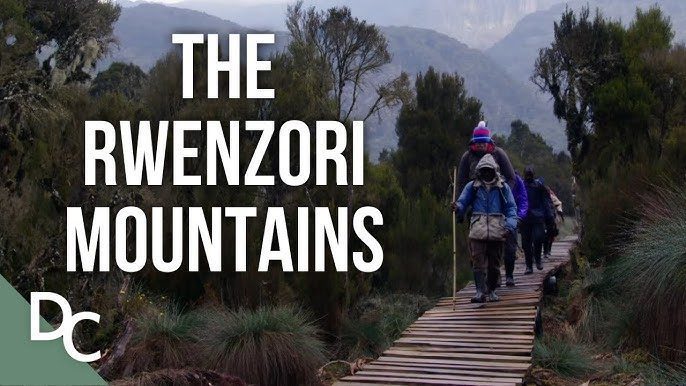
A Hiker’s Paradise off the Beaten Path
The Rwenzori Mountains, a UNESCO World Heritage Site, lie along Uganda’s border with the Democratic Republic of Congo. With peaks reaching over 5,000 meters, the range presents a dramatic and diverse landscape, from dense montane forests alive with bird calls to open valleys filled with giant lobelias and towering heather trees. Above these forests, glaciated peaks rise in sharp contrast, and though Uganda lies along the equator, snow blankets the highest peaks year-round. The range’s varied ecosystems make it one of the most biodiverse places in Africa, home to unique flora and fauna that have adapted to its varied microclimates.
Hiking in the Rwenzoris is unlike any other trekking experience. Trails wind through misty forests and lush, vegetation-covered valleys before ascending into barren alpine zones. For those who reach the upper altitudes, there are sights of glaciers and snowfields that feel worlds away from the heat of Uganda’s lowlands. The hikes are challenging, but for those who brave the trails, the Rwenzoris reveal a raw, unfiltered beauty that rewards with every step.
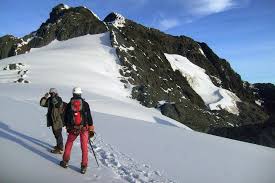
Camp Meetings and Hiking Routes: “Meet in Uganda”
For those seeking an immersive experience, “Meet in Uganda” encourages hikers, campers, and nature enthusiasts to gather for a memorable camp meeting in the heart of the Rwenzori Mountains. This initiative brings hikers and adventure seekers together for shared excursions and camping experiences, making it easier to explore this “unseen Uganda.” The gathering serves as both a trek and a cultural exchange, where participants can connect, share stories, and bond over campfires against a backdrop of jagged peaks.
Basecamps, set up near the lower valleys and alpine zones, offer participants a chance to prepare for the more strenuous climbs. These camp meetings are a fusion of adventure and camaraderie. Hikers can choose from several trails, each with its own unique features and level of difficulty. The most popular routes include the Central Circuit Trail, which circles the major peaks and passes through multiple ecosystems, and the Kilembe Trail, known for its scenic views and challenging ascents. During these hikes, knowledgeable guides share insights about the mountains’ ecology and cultural significance, allowing participants to deepen their understanding of the region.
Whether you’re an experienced climber or a curious beginner, these camp meetings cater to all levels, with short hikes that offer beautiful views of the lower valleys, as well as multi-day treks to the summit for the more adventurous. Gathered around the warmth of a fire in the evening, hikers can enjoy the serene silence of the mountains, occasionally broken by the distant sounds of wildlife, as they prepare for the following day’s trek.
An Unseen Uganda: A Call to Adventure
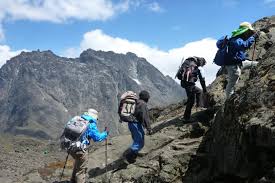
While Kilimanjaro may attract global attention, the Rwenzori Mountains offer something rare: a truly untamed wilderness with hardly any crowds. This off-the-beaten-path adventure is a unique opportunity to see a side of Africa that is raw, undisturbed, and absolutely stunning. The mountains’ isolation from mainstream tourism means that hiking here feels like stepping into a world few have known. And yet, the Rwenzoris offer some of the most diverse hiking experiences on the continent.
To protect this ecosystem, the Uganda Wildlife Authority and local organizations have worked tirelessly to ensure that hiking in the Rwenzori Mountains is an eco-friendly experience. Guides are trained to uphold sustainable practices, educating hikers on ways to minimize their impact on the environment, from packing out all waste to staying on designated trails. As a result, the Rwenzoris remain unspoiled, a testament to Uganda’s dedication to preserving its natural heritage.
The Call of the “Mountains of the Moon”
For hikers and campers looking to escape the crowded trails and experience a side of Uganda that few ever see, the “Mountains of the Moon” offer an irresistible call. Hiking through the Rwenzori range is both a physical and spiritual journey. The breathtaking sights and sounds, from the songs of rare birds to the towering cliffs reflected in tranquil glacial lakes, create a setting that feels almost mythical. It’s no wonder that early explorers believed these mountains to be the source of the Nile and the legendary Mountains of the Moon.
And yet, despite this mythical aura, the Rwenzoris remain remarkably accessible. The town of Kasese, located at the foot of the mountains, serves as the main gateway to the Rwenzori National Park and is reachable from Kampala by road or domestic flights. With a mix of local lodges and campsites, it’s easy for visitors to find accommodations suited to their preferences and budgets.
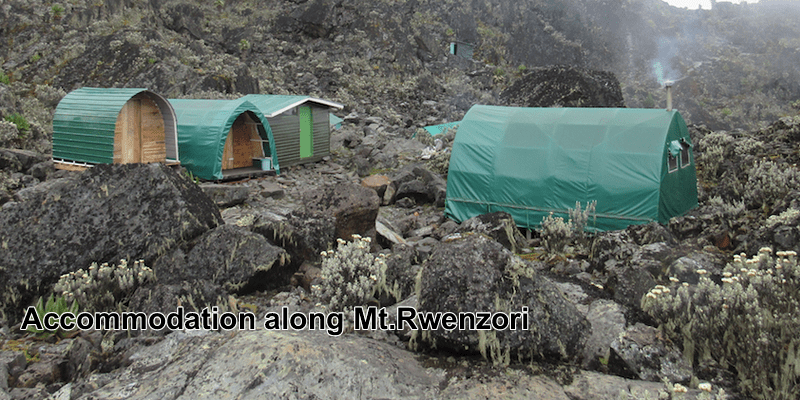
Embrace the Journey
Visiting the Rwenzori Mountains means embarking on a journey that transcends tourism. It’s a chance to witness landscapes untouched by time, where nature reigns supreme and wildlife thrives undisturbed. For anyone looking to escape the beaten path and step into the wild heart of Africa, the Rwenzoris are a hidden treasure worth discovering.
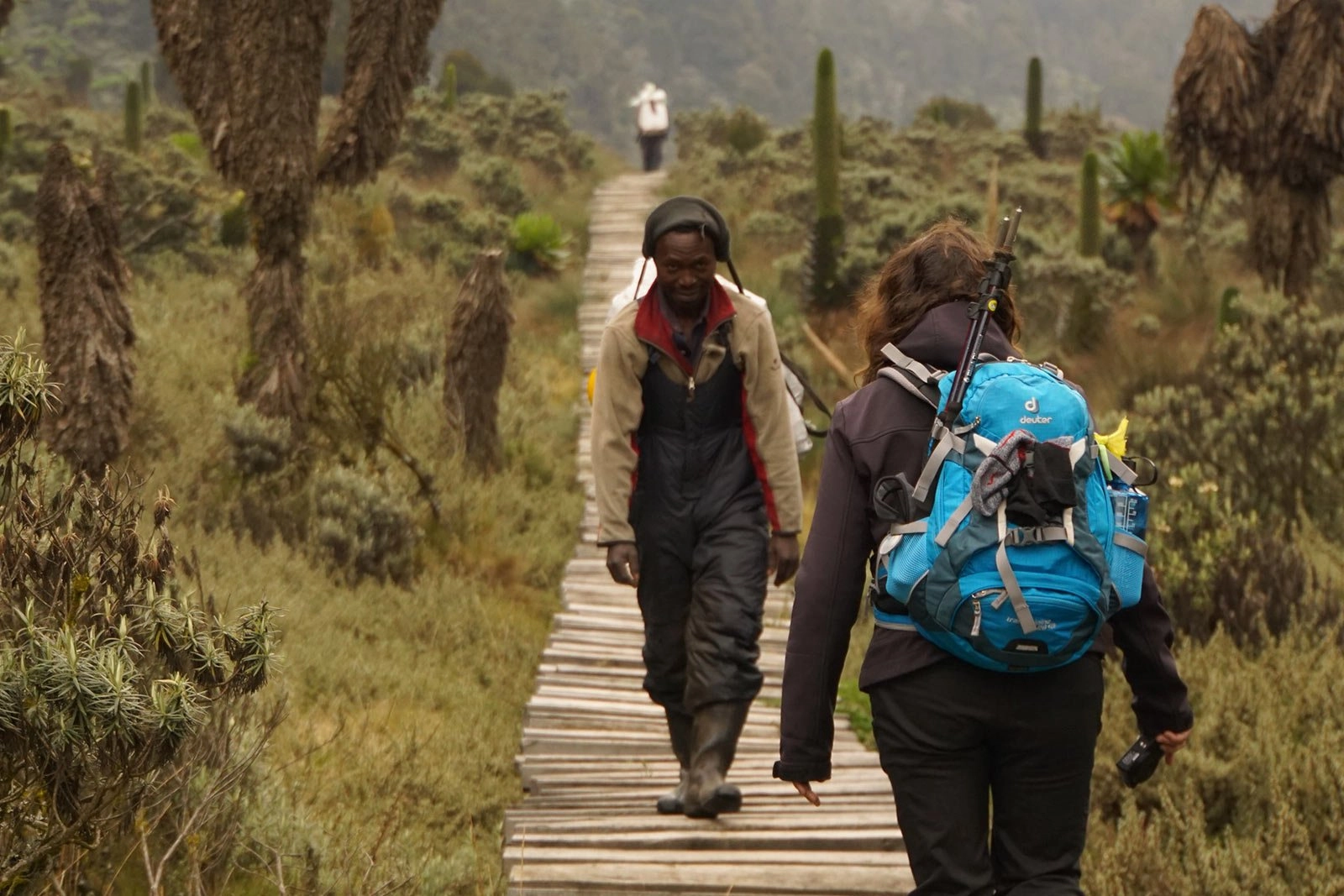
So, pack your hiking boots, ready your camera, and come prepared for an unforgettable encounter with the “Mountains of the Moon.” Join other adventurers in “Meet in Uganda,” where the world’s hikers, explorers, and nature lovers are discovering one of Africa’s best-kept secrets. The Rwenzoris may not be as well-known as Kilimanjaro, but for those who choose to explore these peaks, the memories will be no less legendary.


